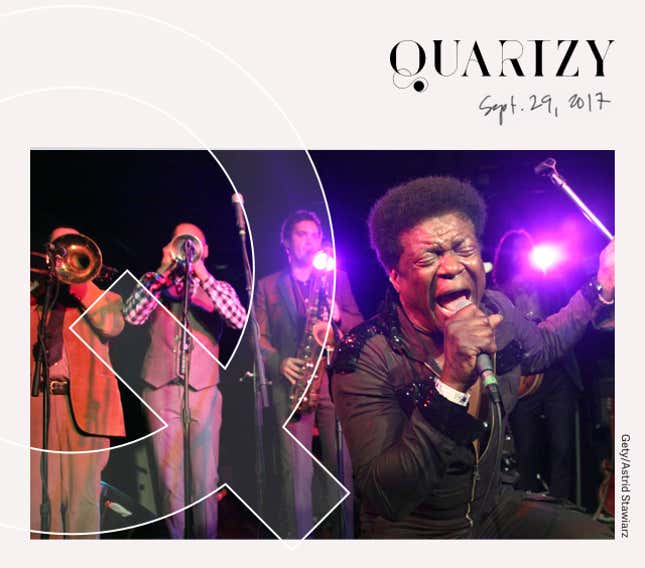
Happy Friday!
Is it though? You might well ask, given the recent earthquakes, hurricanes, floods, Nazis, terrorist attacks, and casual threats of nuclear war. Earlier this month, Quartz editor Sarah Todd provided a welcome—even optimistic—perspective on this strange moment: “We are deep in carpe diem territory.”
“Now is the time to do whatever we want,” she wrote—with caveats that we should continue to help our fellow man and avoid “dooming your future self, just in case you do wind up having one.” But beyond that? Go for it, says Sarah: “Now is a good time to start a miniature donkey ranch, if you’re into that sort of thing. Move to a new city. Join a traveling carnival. Get a neck tattoo.”
“This is how I’m justifying plans to travel to Ireland and Japan before the end of the year,” she explained. “Would it be more sensible for me to use the money from at least one trip for paying down my student loans? Absolutely. Will student loans still exist in 2020, or will the worldwide financial system have crashed and we’ll all be living off the land and the main currency in our new society is just salvaged cans of pamplemousse LaCroix? It’s hard to say.”
I implemented this policy last week when I went to San Diego to see U2 play the epic, spirit-marshaling anthems of 1987’s The Joshua Tree. I don’t know if it was that familiar ringing guitar, the resonance of those Reagan-era songs in today’s world, or just a flashback to my emo teen years, but something inside me opened up. I didn’t fight it. Tears streamed down my cheeks as I sang—really, wailed—along, seizing the opportunity to shamelessly weep in a crowd.
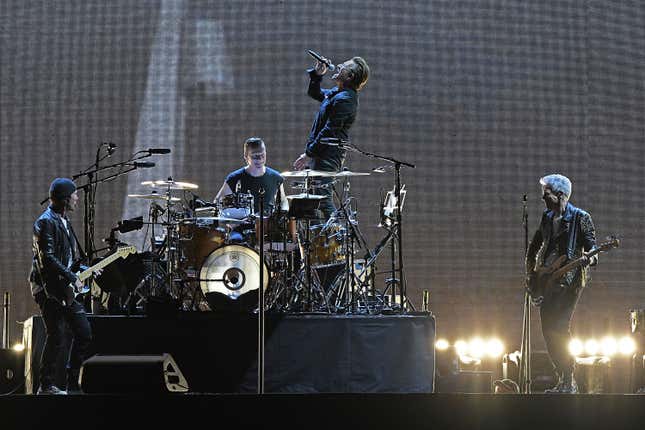
Meanwhile, in other stadiums. I have paid more attention to American football in the last week than I have in the rest of my life combined, thanks to the movement started by Colin Kaepernick, the former quarterback for the San Francisco 49ers who first refused to stand for the singing of the US National Anthem in 2016. His protest, as he explained at the time, was about police killing black citizens with impunity.
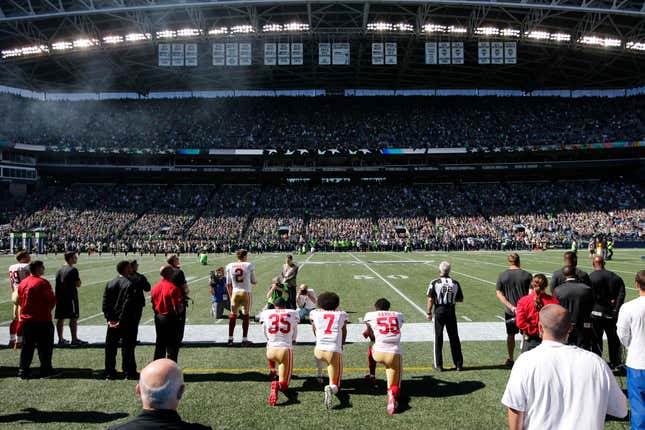
Last week when US president Donald Trump said a player who kneels for the National Anthem is a “son of a bitch” and should be fired by team owners, the issue became one of free speech, and pitted Trump against the NFL.
On one hand, it has been inspiring to see a multitude of the league’s players, coaches, and executives protest the attack on players’ first amendment rights. On the other, the sad fact remains that Colin Kaepernick, the player who started this movement, doesn’t have a job. In practice, wrote Shaun King for the Intercept, what the NFL has done to Kaepernick in freezing him out of the league isn’t actually so different from what Trump suggested.
As this story unfolds—at times, oddly, without Kaepernick in it—it’s worth remembering that his original statement (and his personal sacrifice) was not about Trump. It was about racism and police brutality in the US—problems that are both bigger than the US president, and bigger, as Kaepernick explicitly said in 2016, than football. Kaepernick’s former teammate Eric Reid wrote beautifully in the New York Times on the two men’s decision to kneel, likening their posture to a flag flying at half-mast, mourning respectfully for one’s country.
“I love my country and I’m proud to be an American,” he wrote. “But, to quote James Baldwin, ‘exactly for this reason, I insist on the right to criticize her perpetually.'”
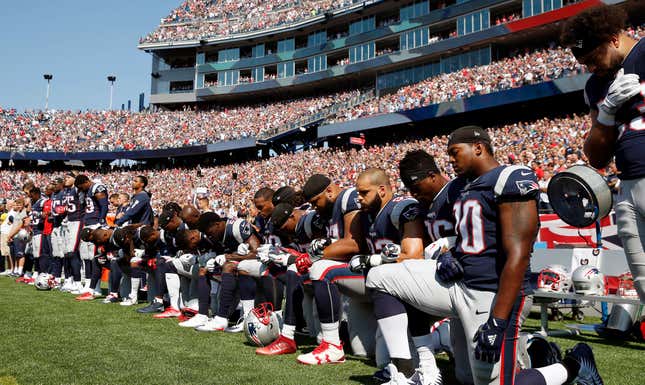
“The World is Going Up in Flames.” This is one of many beautiful songs by the soul singer Charles Bradley, who passed away last Saturday at age 68. Bradley, once a (very good) James Brown impersonator, had a fair helping of tragedy and challenges in his life, and only released his debut record in 2011—the same year he is pictured at the top of today’s letter, at the age of 62. The New Yorker’s Amanda Petrusich posited that maturity and perspective contributed to Bradley’s raw, powerful presence.
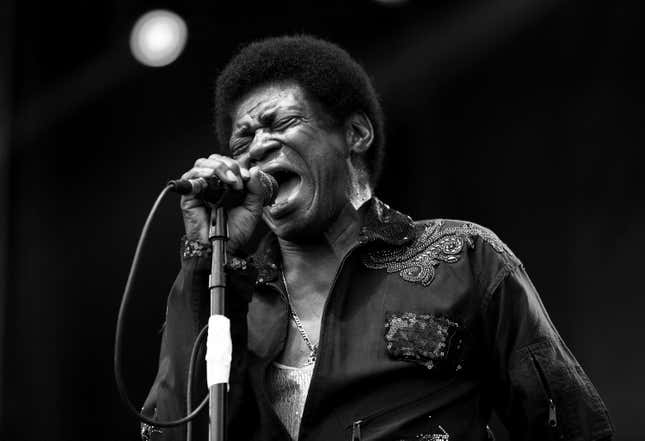
“The hope, I think, is that we get a little less guarded or self-conscious as we age,” she wrote. “You begin to see the beauty in being honest about your particular idiosyncrasies, or at least come to recognize the futility of bucking against them. My sense is that we were getting all of Bradley, unmitigated and pure. He didn’t have the time or patience to mess around.”

Anthems for stripping. If this week left you with some excess energy—or seeking a healthy way to honor the legacy of Hugh Hefner—you might consult one of my favorite Twitter threads of recent memory. A couple weeks ago Tracy Clayton, who co-hosts the podcast Another Round, gave her followers a prompt: ”songs that instantly turn you into a stripper when you’re home alone. go.”
My answer (obviously) was Beyoncé’s ”Partition.” My boyfriend, without hesitation, went for Ginuwine’s “Pony.” I feel we could all use this right now, so I started a playlist. Feel free to reply with additions.
Have a great weekend!
[quartzy-signature]
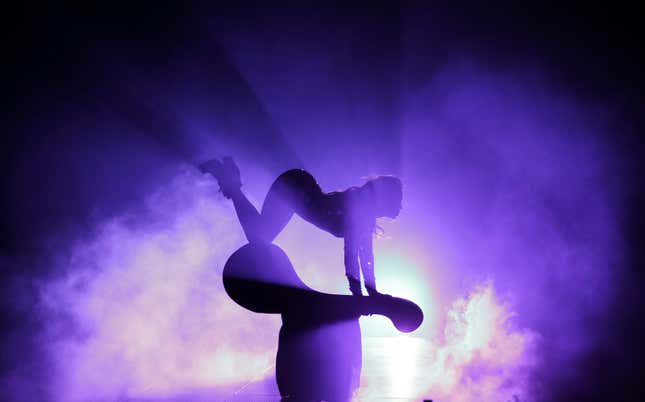
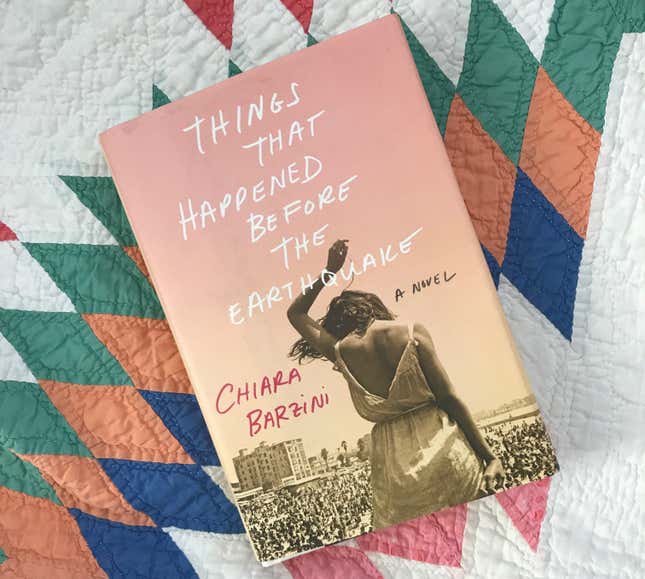
It’s been a while since I enjoyed a book as easily as I did Chiara Barzini’s debut novel, Things That Happened Before the Earthquake. Barzini tells the coming-of-age story of Eugenia, an Italian teenager whose Bohemian parents move her family from Rome to Los Angeles in the years between the Rodney King verdict and the North Ridge earthquake. The societal and tectonic tumult is mirrored in Eugenia’s inner life, and plays out in high school hallways, strip mall parking lots, and on a rocky Sicilian island. The story is not-so-loosely based on Barzini’s own experience, which may be why she tells it so naturally, transporting the reader to the desolate sprawl of the San Fernando Valley and the sun-dappled cradle of Laurel Canyon.